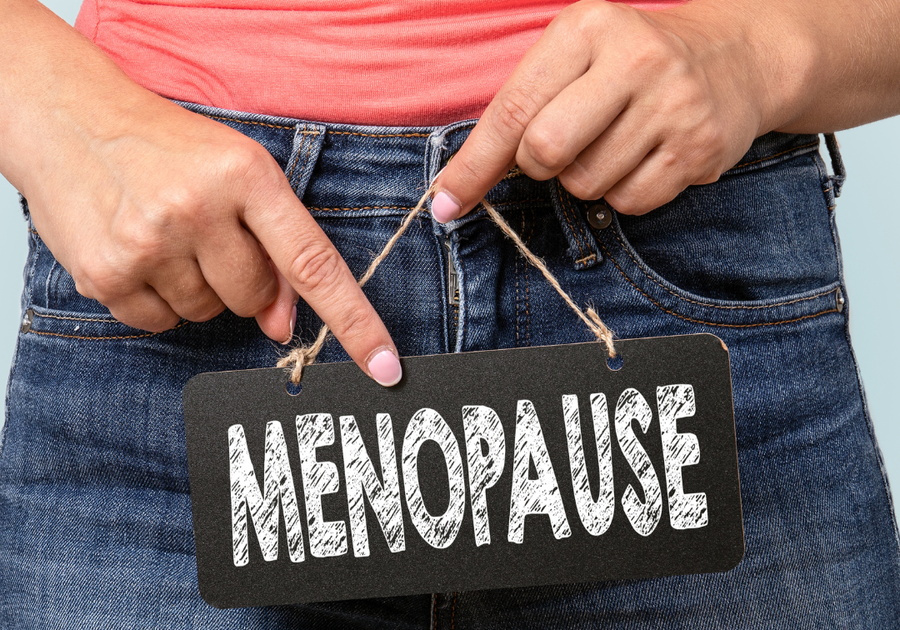Hot flashes, missed periods, and night sweats are part of my life now at 51. It is expected to experience these symptoms at my age. When you are in your 30s you don’t expect to have any of these symptoms but some women do. Luckily menopause is no longer a topic that is taboo among women and we are open to discussing symptoms with our doctors. Atrium Health offers some tips for speaking to your physician about any symptoms you may be experiencing.
Some Experience Menopause Symptoms in Their 30s
The average age women experience menopause is 51, but some experience symptoms in their 30s. But what is it, how can you manage it and why is it important to navigate it with your OB-GYN?
Menopause is a nearly-universal experience for women across the world. Dr. Natasha Adams-Denny, an OB-GYN at Atrium Health Women’s Care Creek Pointe, says menopause is a personal journey, and that women do not have to walk the challenging path alone. “This is a new change of life. There are books out there such as, ‘What to Expect When You Are Expecting,’ when you are having a child. But once you are approaching menopause, you just kind of fall into it.” Adams-Denny encourages women to listen to other people’s stories and ask what they are going through and talk to mothers or other family members to discuss their symptoms. “It’s important to know you have an advocate. OB-GYNs partner with women to identify how their bodies are uniquely responding to menopause and to prescribe treatment accordingly,” she says.
No longer a taboo
Many women know menopause to be a series of hot flashes, mood swings, and eventually, the end of menstruation (hurrah!). But there is a much more specific definition of menopause, one that helps Adams-Denny identify how to best serve her patients: menopause occurs when a woman hasn’t had a period for one full year.
Until they’ve officially entered menopause, women are in perimenopause, a transition cycle during which women’s estrogen levels fluctuate. During this phase, which can last for months or years, women experience varying degrees of symptoms: hot flashes, night sweats, mood changes, and changes in their vaginal region, such as increased dryness. Perimenopause is wildly unpredictable. Periods may become heavier and more frequent, or they can spread out and diminish. On average, women in the U.S. experience menopause between the ages of 51 and 52. Adams-Denny says the average perimenopausal age is 46, with some women experiencing symptoms in their 30s.
Identifying symptoms
Many women spend money testing their hormones to identify whether they are menopausal, or about to experience symptoms of menopause. Such tests have not been validated by the medical community at large. Adams-Denny says, “I tell everyone that you don't have to have your hormones checked at all. There are a lot of stand-alone clinics that will check your hormones for you, but it doesn't necessarily show you anything. Even if you have a high level of estrogen one day, the next day it might be rock bottom and that's when you're experiencing your hot flashes. So, whenever you have your hormones checked we don't know where you are in that cycle of up and down where you know what your ovaries are deciding to do that day.”
She says identifying whether a woman is menopausal is more of an art because every woman’s body is unique. “Therefore, what’s most important is for women to establish a relationship with their OB-GYN that involves overall care, such as routine cervical cancer screening, regular breast exams, checks for abnormal bleeding and other symptoms of serious issues.” Regular care helps OB-GYNs better understand their patients’ overall health, and therefore identify whether they are menopausal.
Treatment
Once you are officially going through menopause, the best thing you can do is to ask your doctor which treatment is best for your body. Natural supplements might be an option, though not much data supports their effectiveness, says Adams-Denny. Vaginal estrogen provides focused treatment for vaginal symptoms. Ultimately, a conversation between doctor and patient can help determine how symptoms should be treated.
Adams-Denny also recommends taking practical action. “Purchase a fan for the bedroom; buy bedding and sleepwear that breathes; use coconut oil as a vaginal lubricant. Simple actions like these can help keep women comfortable and away from what might be costly ineffective treatments.” Treating menopausal symptoms should not cost thousands of dollars nor make women dependent on a lot of medications.
Talk to one another
It’s important that we provide support to women as they go through this natural transition. “We can be understanding and patient when we help women who are experiencing perimenopause or menopause,” says Adams-Denny. “While natural, the transition is a challenging one and one that should be met by the community.”
Atrium Health makes it easy to find the best doctor for you. With more than 200 OB-GYN providers delivering personalized care across the region, you can visit a location close to where you work or live. Learn more about Women’s Care at Atrium Health.



